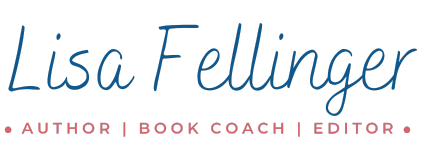
Welcome to the Blog

Do You Need a Book Coach or a Developmental Editor? Here’s How to Tell
Many writers reach a point where they know they need support but feel stuck trying to decide between book coaching and developmental editing, unsure which will actually help them move forward. Both services are valuable, and both can play an important role in the writing journey, yet they’re designed to help writers in different ways. But when you choose support that doesn’t match where you are in the writing process, it can leave you feeling discouraged, overwhelmed, or even questioning whether you’re cut out to write a novel at all. The truth is, feeling stuck even after getting help usually isn’t a sign that you’ve failed, it’s a sign that the support wasn’t the right support for what you needed at that moment.

How to Protect Your Writing Time Without Feeling Guilty
One of the hardest parts of being a writer is being able to protect your writing time so you can do what writers need to do: sit down and get the words written.
It sounds easy enough in theory to make writing a priority, set boundaries, and stick to a writing schedule. But in practice, our other responsibilities creep up and often overtake any time we’ve carved out for writing. And while sometimes this is unavoidable (for example: your kid is sick and you have to shift your priorities for the day), too often this comes down to our own guilt convincing us to give our time to other tasks instead of our writing.

The Biggest Mistakes Writers Make When Revising Their Novels — And How to Fix Them
You finally have a finished draft of your manuscript but now comes the tricky part: figuring out how to revise a novel. Revision can feel confusing and overwhelming, leaving you tempted to stuff the whole thing in a drawer and never look at it again. But with a clear approach, you can transform your draft into a polished, compelling story.

How to Stay Motivated to Write When Life Gets Busy (Even During the Holidays)
It’s almost November, which means the holiday season is about to be in full swing. And if you’re anything like me, you view this upcoming season with both excitement and dread. I love the holidays, but prepping for and participating in them takes a lot of my time and energy, especially now that I have a little one. And when I begin to consider where that extra time and energy will come from, I fear that one of the first things to go will be my writing time.

Behind the Scenes of a Developmental Edit
If you’re anything like me when I first started taking my writing seriously, you may have heard the term developmental editor tossed around but may not be sure exactly what a developmental edit is or how it’s different from other types of editing.
A developmental edit is the first type of edit you want to have completed for your manuscript. This is the edit that looks at the big picture to ensure that your story works. It looks at things like character arcs, plot development, pacing, and structure and offers guidance and feedback on how you can make your story stronger.

You Don’t Have to Earn the Right to Call Yourself a Writer
One of the biggest struggles newer writers (and some experienced writers as well) often have is feeling comfortable calling themselves a writer. They skirt around directly calling themselves one by saying things like “I like to write,” or “I’m an aspiring writer.” And it might seem like a small detail, but one of the first questions I ask any new coaching client is: Are you comfortable calling yourself a writer?

From Self-Criticism to Self-Compassion
Maybe this scenario feels relatable to you: you’ve scheduled time to sit down and write, you’ve made coffee in your favorite mug, and now you’re sitting at the computer staring at the blank screen, but the words just won’t come. No matter how hard you try, you keep flipping over to scroll Instagram, getting up to switch loads of laundry, or adding tasks that pop into your head to your to-do list, and before you know it, your time is up and it’s time to move on with the day. And you’ve written maybe 100 words.

The Real Reason You’re Not Writing
I’m in several writing groups on Facebook, and it’s common to see posts from writers who are struggling. They can’t manage to sit down and write, can’t get words on the page when they do, or they worry their ideas have already been done. And, often, these posts are met with reasonable, practical advice from others: schedule writing time into your calendar, turn off your Wi-Fi so you’re not distracted by social media, get up early before the kids wake up, etc. And while these are all great suggestions, my concern is that they might actually be focused on the wrong things.

The Heart Behind the Book
It’s officially release day for Write With Confidence, and I’ll be honest—writing a nonfiction book was never something on my bucket list. As a fiction writer, I’ve dreamed of the many novels I hope to publish in my lifetime. But writing a nonfiction book—especially one about writing—was never something I planned to do. But now that I have, I’m incredibly excited to share this with you all.

Writing with Confidence Doesn’t Mean You Never Struggle with Doubt
One of the biggest struggles writers face in the creative process is self-doubt. Self-doubt can take many forms for writers: imposter syndrome, questioning your story premise, believing you’re writing isn’t “good enough,” etc. These worries are common for writers and can arise at any point in the writing process and at any stage of our writing careers. And when I talk with writers about writing confidently, they often question how that’s possible when these thoughts continue to creep into their minds.

Write Like You Train
Last week while I was at the gym, I began looking around and noticing the parallels between maintaining a fitness routine and a writing routine. I’ll admit, I was a bit surprised at how many I was able to find. Just like writing, progress in the gym is slow and built on consistency and discipline more than motivation. In both, you have to show up before you feel ready, trust the process, and learn to work through the resistance—literally and figuratively.

Using the Miracle Question to Identify Self-Limiting Beliefs & Unlock Your Writing Potential
If you’ve followed me for any length of time, you’ve likely heard me talk about self-limiting beliefs and the damaging effects they have on a writer’s ability to finish their novel.
As a book coach with a background in mental health counseling, this is one of my favorite topics. Not only because it’s within my wheelhouse, but because I truly believe the reason more writers aren’t finishing their novels isn’t because they can’t write but because self-limiting beliefs prevent them from sitting down and putting in the work.

What Planners Can Learn From Pantsers
If you’ve been in the writing world for even a short amount of time, you’ve likely come across the great debate: planners versus pantsers. If you’re not sure what a planner or pantser is, essentially a planner is a writer who thoroughly plans and outlines their novel before they begin writing, while a pantser is a writer who writes “by the seat of their pants,” choosing to forego an outline and instead jumping right into the drafting stage.

You Are a Real Writer: Overcoming Imposter Syndrome & Owning Your Creativity
Almost every writer has been there at some point: sitting in front of your work in progress, telling yourself everything you write is absolute garbage and wondering just how long it’s going to take everyone else to see what you so clearly do—that you’re not a real writer.
Imposter syndrome is the feeling that an individual is a fraud—that they’re pretending to be something they’re really not—coupled with an overwhelming worry that others will recognize that they’re incompetent and call them out for being frauds. When imposter syndrome has its grip on you, it can paralyze you and leave you unable to make progress with your writing.

Stop Procrastinating and Write Your Damn Book!
One of the biggest struggles for writers is procrastination. Whether you’re still in the planning and outlining phase, working through your first draft, or firmly in the revision phase, if procrastination has a hold on you, it can feel incredibly difficult to overcome. But here’s the sneaky thing about procrastination: it doesn’t always look like something we can control. Procrastination can look like being too busy with other tasks that we can’t not do.

How Do You Define Success as a Writer?
One of the very first questions I ask new book coaching clients is, “What does success look like to you?” I’ll admit, I sometimes second guess myself when I ask this question. After all, isn’t it obvious what success as a writer looks like? Aren’t we all supposed to be aiming for traditional publishing deals with a Big 5 Publisher, reaching #1 on the NYT Bestseller’s List, and having movie rights to our stories auctioned off to the highest bidder? But this is exactly why I ask—because sometimes, often even, this isn’t the definition of success the person sitting across from me has in mind for themselves.

3 Tips to Make Your Romance Characters More Relatable
I don’t know about you, but nothing turns me off more than a romance novel where the characters feel too perfect. While I of course want the characters I’m reading about to be likeable so I can root for them to end up together, I also want them to feel like they could be real people.

Being Intentional to Crush Your Writing Goals
My word for the year in 2024 was “intentional.” And while I had the best intentions (for lack of a better word 🤷🏼♀️) when I set that as my word, I know I failed miserably at carrying that out in any meaningful way in my business and my writing life.
So, this year, I’m trying again. Even though I kept the idea of intentionality in the back of my mind throughout 2024, one thing that became very clear while doing my December reflection work was that last year was really anything but intentional.

Why I’ll Continue Supporting the NaNoWriMo Challenge
With November just around the corner, it’s natural that I’ve been thinking a lot about NaNoWriMo lately and, given the continued controversies that keep piling up against the organization, what my thoughts about potentially participating again are.

5 Steps to Succeed as an Indie Author
I recently spoke with my local library about being a speaker for their Indie Author Day event coming up in November, and it got me thinking about last year’s event. While I was excited for this event, two of the three speakers last year were traditionally published authors, and while I’m an advocate for both traditional and indie publishing, it was disappointing that these authors weren’t able to answer many of the questions those in the audience had about becoming an indie author. One of the big questions asked was “how can an indie author be successful?”
